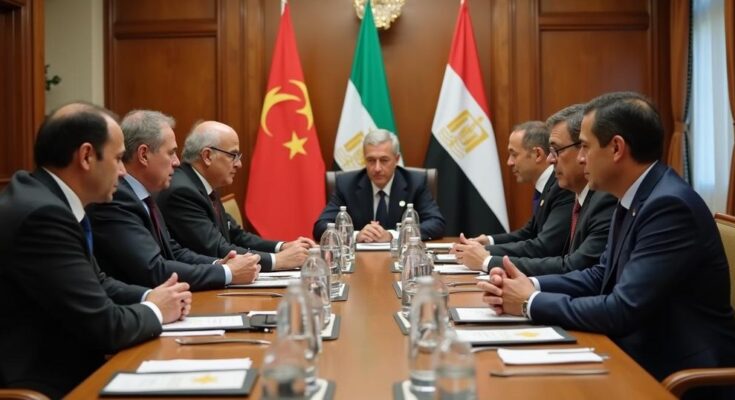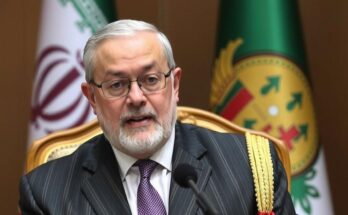Leaders from Egypt, Somalia, and Eritrea convened in Asmara, focusing on cooperative measures amidst strained relations with Ethiopia. Despite assertions of peace from Somalia, observers note the potential for increased pressure on Ethiopia, particularly due to military support from Egypt to Somalia and unresolved territorial disputes.
The recent summit held in Asmara, Eritrea, involved leaders from Egypt, Somalia, and Eritrea, nations that harbor strained relations with Ethiopia. The Eritrean government’s concluding statement emphasized the importance of respecting the sovereignty and territorial integrity of regional nations, which may hint at Ethiopia’s aspirations for access to a seaport without directly mentioning the country. Somalia’s alignment with Egypt and Eritrea has been nudged closer due to recent diplomatic disputes with Ethiopia. Concerns have surfaced regarding the potential for these tensions to escalate into conflict. Hassan Khannenje, director of the Horn International Institute for Strategic Studies, characterized the meeting as an “axis against [Ethiopian capital] Addis Ababa,” asserting it represents an effort to unify animosity aimed at increasing pressure on Ethiopia. However, Somalia’s Information Minister Daud Aweis refuted this suggestion, claiming that the gathering was solely a discussion of cooperation among the three states. He stated, “We are not determined to instigate anything against Addis Ababa… But still we stand for peace and we don’t think that such a meeting in Asmara has anything to do with Ethiopia.” Following the summit, a photograph highlighted camaraderie among President Isaias Afwerki of Eritrea, Egyptian President Abdul Fattah al-Sisi, and Somali President Hassan Sheikh Mohamud. Their collective statement reflected an agreement to enhance Somali state institutions to confront internal and external challenges, particularly terrorism. Notably, this marked President Sisi’s inaugural visit to Asmara, while President Mohamud had already made three trips this year. For years, Ethiopia has supported Somalia’s government against the al-Qaeda-affiliated al-Shabab militant group, yet Somalia has expressed discontent with Ethiopia’s preliminary agreement with Somaliland for a coastal lease, particularly since Somalia considers Somaliland an integral part of its territory. The ongoing tensions are complicated by the long-standing conflict between Addis Ababa and Cairo over the construction of Ethiopia’s Grand Renaissance Dam on the Nile River, a project perceived by Egypt as a threat to its vital water supply. The recent military engagements include an Egyptian ship delivering significant military equipment to Somalia, supplementing earlier arms deliveries via military aircraft. Despite hopes for improved relations following a peace declaration between Ethiopia and Eritrea in 2018, relations have since soured due to various geopolitical factors, particularly following Ethiopia’s civil conflict in the Tigray region and Ethiopia’s continuing ambition for Red Sea access.
The geopolitical landscape in the Horn of Africa has become increasingly complex, particularly involving Ethiopia’s relationships with its neighbors—Egypt, Somalia, and Eritrea. Historical tensions, especially those surrounding Ethiopia’s plans for a coastline and the long-standing Nile River dispute with Egypt, have contributed to regional instability. The recent alignment of Somalia with Egypt and Eritrea indicates a potential shift in diplomatic ties and raises concerns about the implications for Ethiopia, especially in light of a previous peace agreement between Ethiopia and Eritrea that has since unraveled due to conflicts in the Tigray region and national ambitions.
In summary, the meeting in Asmara among the leaders of Egypt, Somalia, and Eritrea signals a potential realignment of regional alliances in response to Ethiopia’s geopolitical aspirations and historical grievances. While Somalia’s government seeks to convey that the summit was focused on cooperation and stability, assertions from experts suggest a different narrative, one that anticipates increased pressure on Ethiopia. As military ties strengthen from Egypt to Somalia, the situation remains precarious, highlighting the fragility of peace in the Horn of Africa.
Original Source: www.capitalfm.co.ke




